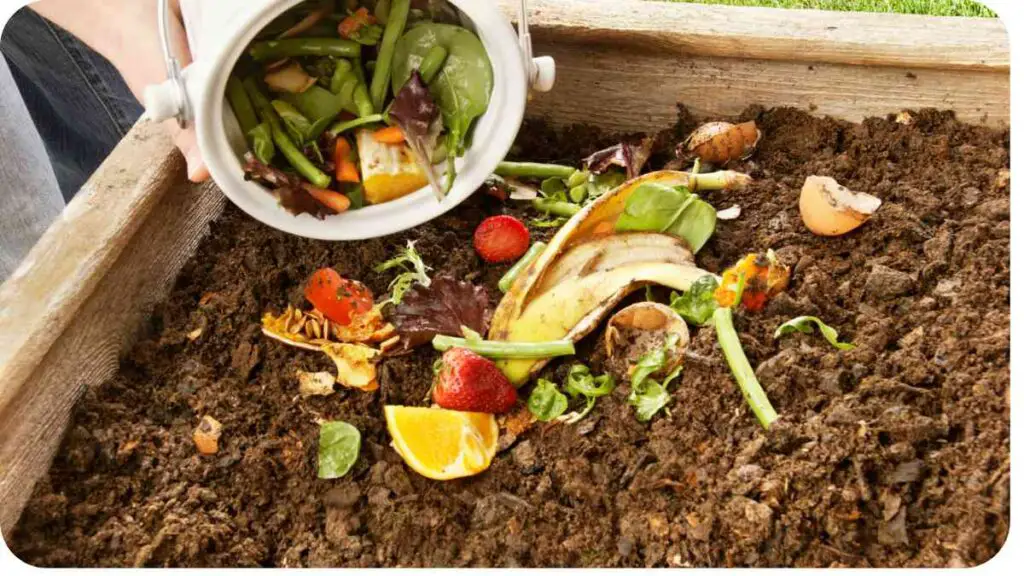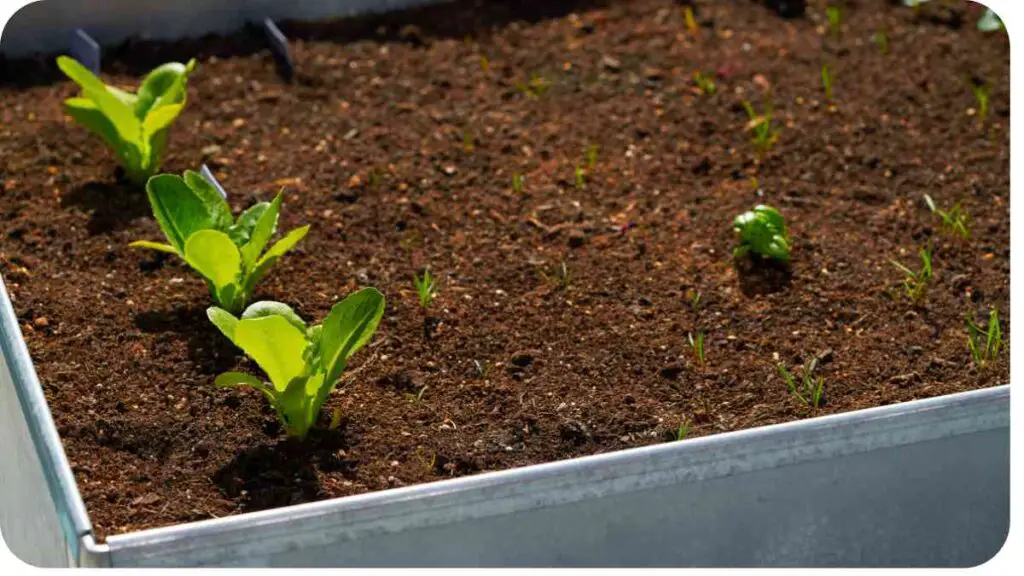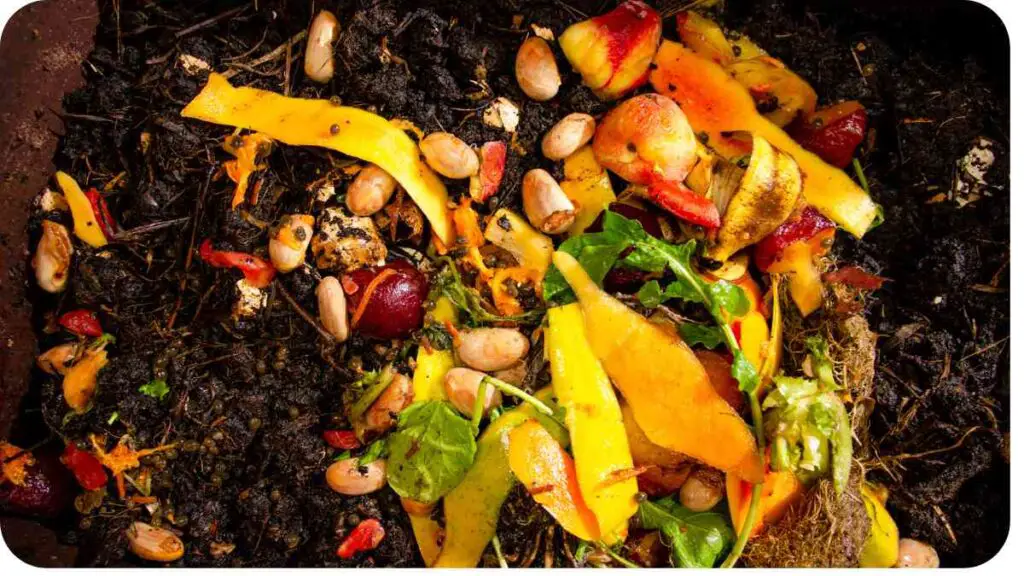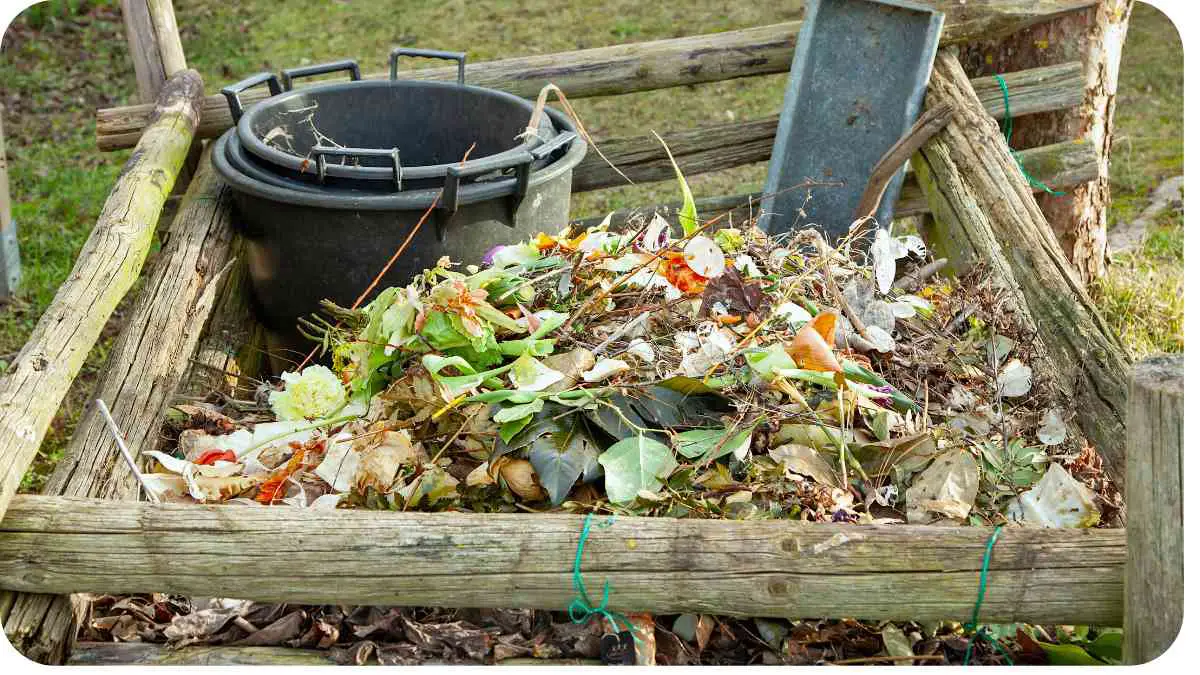Welcome to our guide on the benefits of using compost in a vegetable garden! If you’re looking to improve your garden’s soil health, boost plant growth, and contribute to a more sustainable environment, composting is the way to go.
In this article, we’ll explore the numerous advantages of incorporating compost into your gardening routine, from enriching the soil with essential nutrients to promoting better water retention and weed control.
| Takeaways |
|---|
| 1. Composting enriches soil with nutrients. |
| 2. Improved soil structure promotes root growth. |
| 3. Compost helps retain moisture in the soil. |
| 4. Suppresses plant diseases and weeds. |
| 5. Composting reduces environmental impact. |
| 6. Cost-effective alternative to commercial fertilizers. |
| 7. Different types of compost bins available. |
| 8. Various methods for using compost in the garden. |
| 9. Common composting mistakes to avoid. |
| 10. Additional resources for further reading. |
2. What is Compost?

Before we delve into the benefits of using compost, let’s briefly discuss what compost actually is. Compost is a nutrient-rich organic material that results from the decomposition of organic matter such as kitchen scraps, yard waste, and plant debris.
Implementing organic gardening methods enriches soil with vital nutrients and fosters a thriving ecosystem. By prioritizing sustainability and natural practices, gardeners ensure long-term soil health and bountiful harvests.” improve soil health in their gardens.
Through the process of composting, these materials break down into a dark, crumbly substance known as humus, which is incredibly beneficial for soil health and plant growth.
Table 1: Essential Components of Compost
| Component | Description |
|---|---|
| Organic Matter | Includes kitchen scraps, yard waste, and plant debris |
| Microorganisms | Bacteria, fungi, and other microbes involved in decomposition |
| Air | Adequate aeration is crucial for the composting process |
| Water | Moisture levels should be maintained for decomposition |
3. Nutrient-Rich Soil
One of the primary benefits of using compost in a vegetable garden is its ability to enrich the soil with essential nutrients. Compost contains a diverse array of nutrients, including nitrogen, phosphorus, potassium, and micronutrients, which are vital for plant growth and development. When incorporated into the soil, compost releases these nutrients gradually, providing a steady supply to plants throughout the growing season.
Table 2: Nutrient Content of Compost
| Nutrient | Role in Plant Growth |
|---|---|
| Nitrogen | Essential for leafy growth |
| Phosphorus | Promotes root development |
| Potassium | Enhances flowering and fruiting |
| Micronutrients | Support various biochemical processes |
By improving soil fertility, compost helps plants establish stronger root systems, resist pests and diseases, and produce higher yields of nutritious vegetables.
4. Improved Soil Structure
In addition to supplying essential nutrients, compost also plays a crucial role in improving soil structure. Soil structure refers to the arrangement of soil particles and the spaces between them, which directly impacts aeration, drainage, and root penetration.
Incorporating compost into the soil helps to create a crumbly, well-aerated texture that facilitates root growth and allows for better water infiltration and retention.
Rooftop gardens transform urban spaces into green havens, utilizing innovative techniques to cultivate plants in limited areas. Through careful planning and structural considerations, these gardens offer environmental benefits and aesthetic enhancements to city landscapes.” rooftop gardens elevate urban environments.
Table 3: Soil Structure Improvement with Compost
| Aspect | Benefits of Improved Soil Structure |
|---|---|
| Aeration | Facilitates oxygen exchange for root respiration |
| Drainage | Prevents waterlogging and soil compaction |
| Root Penetration | Allows roots to penetrate soil easily |
| Soil Aggregation | Promotes aggregation for better soil stability |
By enhancing soil structure, compost ensures that your vegetable plants have access to the oxygen, water, and nutrients they need for optimal growth and productivity.
5. Retention of Moisture
Maintaining adequate soil moisture is essential for healthy plant growth, especially in a vegetable garden. Compost can significantly improve moisture retention in the soil, reducing the need for frequent watering and helping plants withstand periods of drought stress. The organic matter in compost acts like a sponge, holding onto water and releasing it slowly to plant roots as needed.
Table 4: Moisture Retention Benefits of Compost
| Aspect | Benefits of Improved Moisture Retention |
|---|---|
| Water Holding Capacity | Reduces the frequency of irrigation |
| Drought Tolerance | Helps plants withstand dry conditions |
| Consistent Moisture | Provides a steady supply of water to plants |
| Reduced Runoff | Minimizes water loss through runoff |
By enhancing moisture retention, compost ensures that your vegetable garden remains well-hydrated, promoting healthy growth and resilience against environmental stressors.
6. Suppressing Plant Diseases
Another significant benefit of using compost in a vegetable garden is its ability to suppress plant diseases. Compost contains beneficial microorganisms, such as bacteria and fungi, that compete with harmful pathogens for space and resources in the soil. Additionally, the organic matter in compost stimulates the growth of beneficial microbes that can help protect plants from diseases.
Homegrown vegetables boast superior flavor and nutritional value compared to store-bought counterparts, thanks to fresher produce and minimal handling. Cultivating vegetables in personal gardens allows for optimal ripening and harvesting, enhancing taste and overall satisfaction.” home gardens yield unparalleled freshness.
Table 5: Disease Suppression by Compost
| Aspect | Benefits of Disease Suppression by Compost |
|---|---|
| Microbial Competition | Suppresses harmful pathogens |
| Enhanced Plant Immunity | Stimulates plant defenses |
| Disease Resistance | Reduces susceptibility to infections |
| Soil Health | Promotes a balanced microbial ecosystem |
By fostering a healthy soil microbiome, compost contributes to overall plant health and reduces the risk of common diseases in vegetable crops.
7. Weed Control
Weeding can be a tedious and time-consuming task in any garden, but incorporating compost can help reduce weed growth and make weed management more manageable. When applied as a mulch or mixed into the soil, compost creates a protective barrier that suppresses weed seeds from germinating and competing with your vegetable plants for nutrients and space.
Table 6: Weed Control with Compost
| Aspect | Benefits of Weed Control with Compost |
|---|---|
| Weed Suppression | Prevents weed seeds from germinating |
| Mulching Effect | Creates a barrier that inhibits weed growth |
| Nutrient Competition | Competes with weeds for nutrients |
| Soil Coverage | Provides coverage to prevent weed growth |
By using compost as a natural weed deterrent, you can spend less time pulling weeds and more time enjoying a thriving vegetable garden.
8. Environmental Benefits

Composting not only benefits your vegetable garden but also has positive impacts on the environment. By diverting organic waste from landfills and turning it into compost, you reduce methane emissions, a potent greenhouse gas produced during the decomposition of organic matter in anaerobic conditions.
Table 7: Environmental Benefits of Composting
| Aspect | Environmental Benefits of Composting |
|---|---|
| Waste Diversion | Reduces organic waste sent to landfills |
| Methane Reduction | Minimizes greenhouse gas emissions |
| Soil Conservation | Improves soil health and reduces erosion |
| Carbon Sequestration | Stores carbon in the soil, mitigating climate change |
By composting organic materials, you can play a part in mitigating climate change and promoting sustainable practices in your community.
9. Cost-Effectiveness
Using compost in your vegetable garden can also lead to cost savings in the long run. Instead of purchasing commercial fertilizers and soil amendments, you can produce nutrient-rich compost at home using kitchen scraps, yard waste, and other organic materials.
Homegrown vegetables boast superior flavor and nutritional value compared to store-bought counterparts, thanks to fresher produce and minimal handling. Cultivating vegetables in personal gardens allows for optimal ripening and harvesting, enhancing taste and overall satisfaction.” home gardens yield unparalleled freshness.
By recycling these materials into compost, you reduce the need for store-bought inputs and lower your gardening expenses.
Table 8: Cost Savings with Compost
| Aspect | Cost-Effective Benefits of Using Compost |
|---|---|
| Reduction in Purchases | Less need for commercial fertilizers and soil amendments |
| DIY Approach | Producing compost at home saves money on gardening supplies |
| Long-Term Investment | Initial investment in composting equipment pays off over time |
By harnessing the power of composting, you can achieve a bountiful vegetable garden without breaking the bank.
10. How to Make Compost
Now that we’ve explored the benefits of using compost, let’s discuss how you can make your own compost at home. Composting is a straightforward process that involves collecting organic materials, creating the right conditions for decomposition, and allowing nature to do the rest. Here’s a basic guide to get you started:
Table 9: Steps to Make Compost
| Step | Description |
|---|---|
| 1. Gather Materials | Collect kitchen scraps, yard waste, and other organic matter |
| 2. Choose a Location | Select a suitable spot for your compost pile or bin |
| 3. Build the Pile | Layer organic materials and provide aeration |
| 4. Maintain Moisture | Keep the compost moist but not waterlogged |
| 5. Turn the Pile | Mix and aerate the compost regularly to speed up decomposition |
| 6. Harvest Compost | Use finished compost in your vegetable garden |
By following these steps, you can create nutrient-rich compost to enhance the health and productivity of your vegetable garden.
11. Types of Compost Bins
When it comes to composting, there are various types of compost bins available to suit different preferences and space constraints. Choosing the right compost bin can make the composting process more efficient and convenient. Here are some common types of compost bins to consider:
Table 10: Types of Compost Bins
| Type | Description |
|---|---|
| 1. Tumbling Composter | Barrel-shaped bins that can be rotated to aerate the compost |
| 2. Wire Mesh Bin | Simple and inexpensive bins made from wire mesh |
| 3. Wooden Bin | Sturdy wooden bins that provide insulation and airflow |
| 4. Plastic Bin | Durable plastic bins with lids to keep pests out |
| 5. Vermicomposting Bin | Specialized bins for composting with worms |
Each type of compost bin has its advantages and drawbacks, so consider your specific needs and preferences when selecting the right one for your vegetable garden.
12. Using Compost in Your Garden

Once you have produced nutrient-rich compost, it’s time to put it to use in your vegetable garden. There are several ways to incorporate compost into your garden soil and reap its benefits for your plants. Here are some effective methods for using compost in your garden:
Botanical gardens employ meticulous strategies to prevent the spread of plants beyond designated areas, safeguarding local ecosystems from invasive species. Through rigorous monitoring and containment measures, these institutions maintain biodiversity while preserving plant collections for future generations.” botanical gardens play a crucial role in conservation efforts.
Table 11: Methods of Using Compost in Your Garden
| Method | Description |
|---|---|
| 1. Soil Amendment | Mix compost into the soil before planting or as a top dressing |
| 2. Mulching | Spread a layer of compost around plants to conserve moisture and suppress weeds |
| 3. Compost Tea | Brew compost in water to create a nutrient-rich liquid fertilizer |
| 4. Seed Starting | Use compost as a seed starting mix to provide nutrients to seedlings |
Experiment with different methods to find the best way to incorporate compost into your gardening routine and maximize its benefits for your vegetable plants.
13. Common Mistakes to Avoid
While composting offers numerous benefits for your vegetable garden, there are some common mistakes that gardeners often make when composting. Avoiding these pitfalls can help ensure that you produce high-quality compost and achieve the best results in your garden. Here are some common mistakes to watch out for:
Table 12: Common Composting Mistakes
| Mistake | Description |
|---|---|
| 1. Neglecting Aeration | Insufficient airflow can slow down the composting process and lead to anaerobic conditions |
| 2. Improper Moisture Levels | Compost should be moist like a wrung-out sponge, not too dry or waterlogged |
| 3. Adding Meat or Dairy | These materials can attract pests and produce unpleasant odors |
| 4. Not Turning the Pile | Regular turning promotes decomposition and prevents odors |
| 5. Overloading with Grass Clippings | Too many grass clippings can create a slimy, smelly mess |
| 6. Ignoring Carbon-to-Nitrogen Ratio | Aim for a balanced ratio of green (nitrogen-rich) and brown (carbon-rich) materials |
| 7. Using Diseased Plant Material | Diseased plants can spread pathogens to your compost and garden |
By avoiding these common mistakes, you can ensure that your composting efforts are successful and produce high-quality compost for your vegetable garden.
Raised beds offer numerous advantages for gardeners, including improved soil drainage, better pest control, and easier access for planting and harvesting. By elevating plants above ground level, gardeners create optimal growing conditions and maximize space efficiency in their gardens.” raised beds optimize gardening spaces for optimal yields.
14. Conclusion
In conclusion, using compost in a vegetable garden offers a multitude of benefits for both plants and the environment. From enriching the soil with essential nutrients to improving soil structure, moisture retention, and weed control, composting is a valuable practice for any gardener.
By making your own compost at home and incorporating it into your gardening routine, you can create a healthy and thriving vegetable garden while reducing waste and promoting sustainability.
Further Reading
Here are some additional resources for further exploration of composting and its benefits:
- California Department of Resources Recycling and Recovery (CalRecycle) – Benefits of Composting and Mulching
- Learn more about the environmental and agronomic benefits of composting and mulching from the California Department of Resources Recycling and Recovery.
- US Composting Council – Plant Growth Benefits of Composting
- Discover how composting promotes plant growth and enhances soil health with insights from the US Composting Council.
- Planet Natural – Compost and Soil Health
- Explore the science behind compost and its impact on soil health with information from Planet Natural.
FAQs
What are the benefits of using compost in a vegetable garden?
Using compost in a vegetable garden enriches the soil with essential nutrients, improves soil structure, enhances moisture retention, suppresses plant diseases, and controls weeds.
How do I make compost at home?
To make compost at home, gather organic materials such as kitchen scraps and yard waste, layer them in a compost bin, maintain proper moisture and aeration, and turn the pile regularly to speed up decomposition.
Can composting help reduce waste?
Yes, composting diverts organic waste from landfills, reducing methane emissions and contributing to a more sustainable waste management system.
What can I compost?
You can compost a variety of organic materials, including fruit and vegetable scraps, coffee grounds, eggshells, yard trimmings, and shredded paper. Avoid composting meat, dairy, and oily foods.
How long does it take for compost to be ready?
The time it takes for compost to be ready depends on various factors such as temperature, moisture levels, and the types of materials used. Generally, compost can be ready in a few months to a year.

For 15 years, Hellen James has worked in the gardening industry as an expert and landscape designer. During her career, she has worked for a variety of businesses that specialize in landscaping and gardening from small firms to large corporations.

